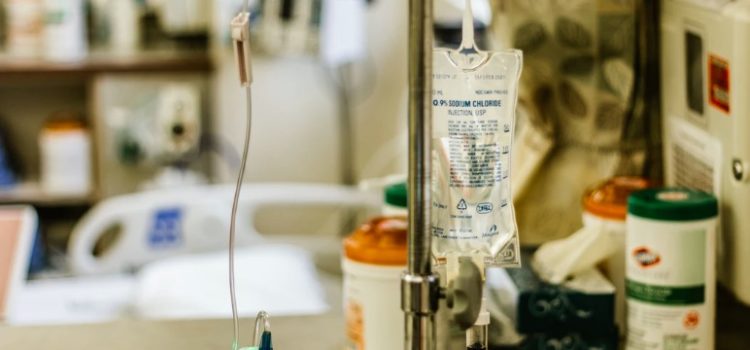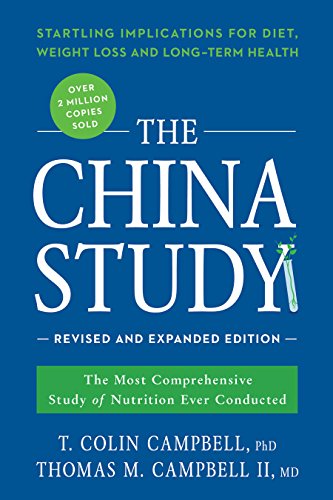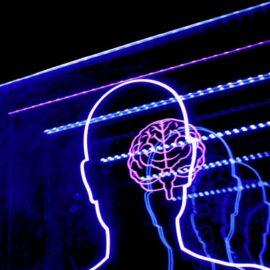

This article is an excerpt from the Shortform summary of "The China Study" by Colin Campbell. Shortform has the world's best summaries of books you should be reading.
Like this article? Sign up for a free trial here .
What are the 3 stages of cancer development? Is there anything we can do to slow or reverse the progress of cancer in its early stages?
The three stages of cancer development are initiation, promotion, and progression.
We’ll cover what happens in each of the stages of cancer development and how cutting animal proteins from your diet may be the key to reducing your cancer risk at each of the first two stages.
Cancer in America
Cancer is one of the most feared diseases in America. We’re swift in responding to carcinogen discoveries, decrying the use of DDT, Red Dye Number 2, nitrates, and artificial sweeteners.
But we’re not swift in the face of discoveries that are much more impressive and substantial, like the research linking casein with cancer. These findings are so counter to what we’ve always been told that they’re hard to take seriously.
Another discovery that gets ignored is the fact that cancer is, for the most part, preventable. Genetics only determine 2-3% of your cancer risk.
Learn how your diet impacts the 3 stages of cancer development.
The 3 Stages of Cancer Development
Carcinogens cause cancer by permanently damaging a cell’s DNA, mutating it from a normal cell to a cancer cell. The cancer cell then replicates, and the cancer may spread to other tissues and body systems.
We can think of the 3 stages of cancer development like the process of seeds becoming a lawn.
Stage 1 of Cancer Development: Initiation
This is the stage of cancer development analogous to putting the seeds in the soil. In this stage, the carcinogen enters the body and is transported into cells.
Also in this stage, the carcinogen changes into its “active” dangerous form and binds to DNA. Damaged DNA is then passed on to daughter cells. In humans, this stage can be completed within minutes and it can’t be reversed. Once it’s done, it’s done.
Research on Protein in the Initiation Stage of Cancer Development
Through various studies, Campbell and his researchers found that low-protein diets can do the following at this stage:
- Allow less of the carcinogen into the cell
- Slow the multiplication of cancer cells
- Reduce enzyme activity in the cell (enzyme activity “activates” the carcinogen, making it more dangerous)
This means that lowering your animal-protein intake can greatly decrease your chances of tumor initiation. In other words, a low-protein diet can decrease the number of seeds (activated carcinogens and damaged cells) in the ground (the body).
Stage 2 of Cancer Development: Promotion
In the second stage of cancer development, the seeds are getting ready to become small blades of grass, or cancer cells are getting ready to grow and multiply.
During the promotion stage, a cluster of cancer cells grows into a detectable tumor. In humans, this stage progresses over many years.
Just as seeds won’t grow into blades of grass if their environment doesn’t have enough sunlight, water, and nutrients, cancer cells won’t multiply if the conditions aren’t right. They’ll just stay dormant.
What makes conditions “right”? Animal protein may provide the perfect environment for cancer growth.
Research on Protein in the Promotion Stage of Cancer Development
Rats given a high dose of a carcinogen but fed a low-protein diet were less at risk of developing a tumor, compared to those given a low dose of the carcinogen but fed a high-protein diet.
In other words, the presence of protein mattered more than the amount of the carcinogen. We can consume large doses of carcinogens and still not get cancer when we limit our animal-protein intake.
Interestingly, protein (specifically, casein, a milk protein) acted as a switch during this stage. Researchers could increase the amount of protein in an animal’s diet and watch the cancer-cell clusters grow. Two weeks later, they could decrease protein and watch cluster growth slow and even reverse. They could change the direction of growth multiple times, with both animals that started on a high-protein diet and those who started with a low-protein diet.
This implies that even after cancer growth was reversed, the cancer cells never disappeared. They were just dormant. So if you stop eating dairy for years but start eating it again later, you could reactivate cancer cells that have been dormant.
Clusters of cancer cells only developed when rats were fed diets of 12% casein protein or higher. Those who ate more than the required amount of protein they needed to survive and grow were at the greatest risk.
Stage 3 of Cancer Development: Progression
In the final stage of cancer development, the grass grows into a lawn and then starts to invade the driveway and the sidewalk. Similarly, cancer cells in this stage stray from their original location, spreading to other tissues. This is the process of cancer metastasizing.
At this stage, diet is unlikely to have a huge effect on the cancer cells.
But you can influence the first 2 stages of cancer development by altering your diet. Limiting animal proteins in your diet can help you decrease your cancer risk and keep affected cells from becoming dangerous.
———End of Preview———

Like what you just read? Read the rest of the world's best summary of "The China Study" at Shortform . Learn the book's critical concepts in 20 minutes or less .
Here's what you'll find in our full The China Study summary :
- Why animal proteins (meat, milk) might cause cancer, diabetes, and other diseases
- Why the medical institution is structured to hide the truth about disease and food
- The precise diet you'll need to eat to live longer and feel happier






